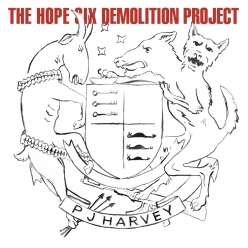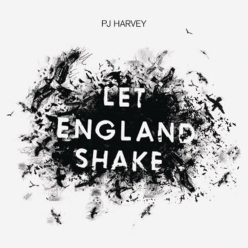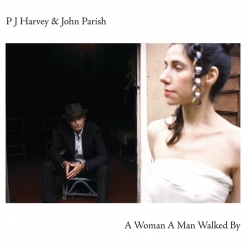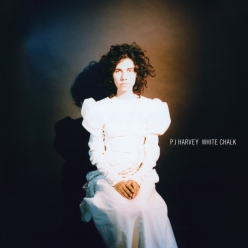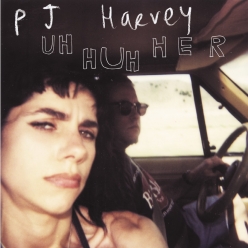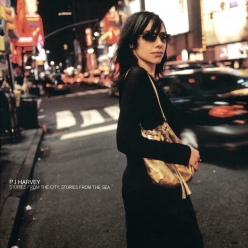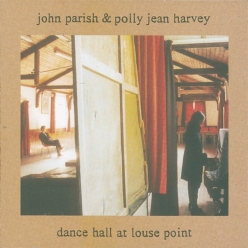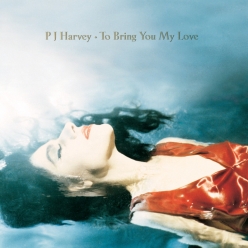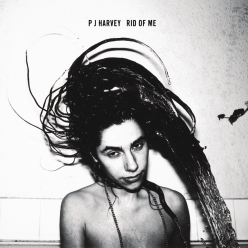Biography
Polly Jean Harvey MBE (born 9 October 1969) known as PJ Harvey, is an English musician, singer-songwriter, writer, poet, and composer. Primarily known as a vocalist and guitarist, she is also proficient with a wide range of instruments.
Harvey began her career in 1988 when she joined local band Automatic Dlamini as a vocalist, guitarist, and saxophone player. The band's frontman, John Parish, would become her long-term collaborator. In 1991, she formed an eponymous trio and subsequently began her professional career. The trio released two studio albums, Dry (1992) and Rid of Me (1993) before disbanding, after which Harvey continued as a solo artist. Since 1995, she has released a further nine studio albums with collaborations from various musicians including John Parish, former bandmate Rob Ellis, Mick Harvey, and Eric Drew Feldman and has also worked extensively with record producer Flood.
Among the accolades she has received are the 2001 and 2011 Mercury Prize for Stories from the City, Stories from the Sea (2000) and Let England Shake (2011) respectively—the only artist to have been awarded the prize twice—eight Brit Award nominations, seven Grammy Award nominations and two further Mercury Prize nominations. Rolling Stone awarded her 1992's Best New Artist and Best Singer Songwriter and 1995's Artist of the Year, and listed Rid of Me, To Bring You My Love (1995) and Stories from the City, Stories from the Sea on its 500 Greatest Albums of All Time list. In 2011, she was awarded for Outstanding Contribution To Music at the NME Awards. In June 2013, she was awarded an MBE for services to music.
Contents 1 Early life 2 Music career 2.1 Automatic Dlamini: 1988–1991 2.2 PJ Harvey Trio; Dry and Rid of Me: 1991–1993 2.3 Solo career: 1993–present 2.3.1 To Bring You My Love and Is This Desire?: 1993–1999 2.3.2 Stories from the City, Stories from the Sea and Uh Huh Her: 2000–2006 2.3.3 White Chalk and Let England Shake: 2007–2014 2.3.4 The Hope Six Demolition Project: 2015–present 2.4 Collaborations and projects 3 Musical style and influences 4 Other ventures 5 Personal life 6 Discography 7 Personnel 8 See also 9 References 10 Further reading 11 External links Early lifeHarvey was born on 9 October 1969 in Bridport, Dorset, as the second child of Ray and Eva Harvey, who owned a stone quarrying business, and grew up on the family's farm in Corscombe. During her childhood, she attended school in nearby Beaminster, where she received guitar lessons from folk singer-songwriter Steve Knightley, and her parents introduced her to music that would later influence her work, including blues music, Captain Beefheart and Bob Dylan. Her parents were avid music fans and regularly arranged get-togethers and small gigs; among their oldest friends was Ian Stewart.
As a teenager, Harvey began learning saxophone and joined an eight-piece instrumental group Bologne, based in Dorset. She was also a guitarist with folk duo the Polekats, with whom she wrote some of her earliest material. After finishing school, Harvey attended Yeovil College and attended a visual arts foundation course.
Music career Automatic Dlamini: 1988–1991In July 1988, Harvey became a member of Automatic Dlamini, a band based in Bristol with whom she gained extensive ensemble-playing experience. Formed by John Parish in 1983, the band consisted of a rotating line-up that at various times included Rob Ellis and Ian Oliver. Harvey had met Parish in 1987 through mutual friend Jeremy Hogg, the band's slide guitarist. Providing saxophone, guitars and background vocals, she travelled extensively during the band's early days, including performances in West Germany, Spain and Poland to support the band's debut studio album, The D is for Drum. A second European tour took place throughout June and July 1989. Following the tour, the band recorded Here Catch, Shouted His Father, their second studio album, between late 1989 and early 1990. This is the only Automatic Dlamini material to feature Harvey, but remains unreleased, although bootleg versions of the album are in circulation.
In January 1991, Harvey left to form her own band with former bandmates Ellis and Oliver; yet she had formed lasting personal and professional relationships with certain members, especially Parish, whom she has referred to as her "musical soulmate." Parish would subsequently contribute to, and sometimes co-produce, Harvey's solo studio albums and has toured with her a number of times. As a duo, Parish and Harvey have recorded two collaborative albums where Parish composed the music and Harvey penned the lyrics. Additionally, Parish's girlfriend in the late 1980s was photographer Maria Mochnacz. She and Harvey became close friends and Mochnacz went on to shoot and design most of Harvey's album artwork and music videos, contributing significantly to her public image.
Harvey has said of her time with Automatic Dlamini: "I ended up not singing very much but I was just happy to learn how to play the guitar. I wrote a lot during the time I was with them but my first songs were crap. I was listening to a lot of Irish folk music at the time, so the songs were folky and full of penny whistles and stuff. It was ages before I felt ready to perform my own songs in front of other people." She also credits Parish for teaching her how to perform in front of audiences, saying "after the experience with John's band and seeing him perform I found it was enormously helpful to me as a performer to engage with people in the audience, and I probably did learn that from him, amongst other things."
PJ Harvey Trio; Dry and Rid of Me: 1991–1993In January 1991, following her departure from Automatic Dlamini, Harvey formed her own band with former bandmates Rob Ellis and Ian Oliver. Harvey decided to name the trio PJ Harvey after rejecting other names as "nothing felt right at all or just suggested the wrong type of sound", and also to allow her to continue music as a solo artist. The trio consisted of Harvey on vocals and guitars, Ellis on drums and backing vocals, and Oliver on bass. Oliver later departed to rejoin the still-active Automatic Dlamini. He was subsequently replaced with Steve Vaughan. The trio's "disastrous" debut performance was held at a skittle alley in Charmouth Village Hall in April 1991. Harvey later recounted the event saying: "we started playing and I suppose there was about fifty people there, and during the first song we cleared the hall. There was only about two people left. And a woman came up to us, came up to my drummer, it was only a three piece, while we were playing and shouted at him 'Don't you realize nobody likes you! We'll pay you, you can stop playing, we'll still pay you!'"
Dress Problems playing this file? See media help.
